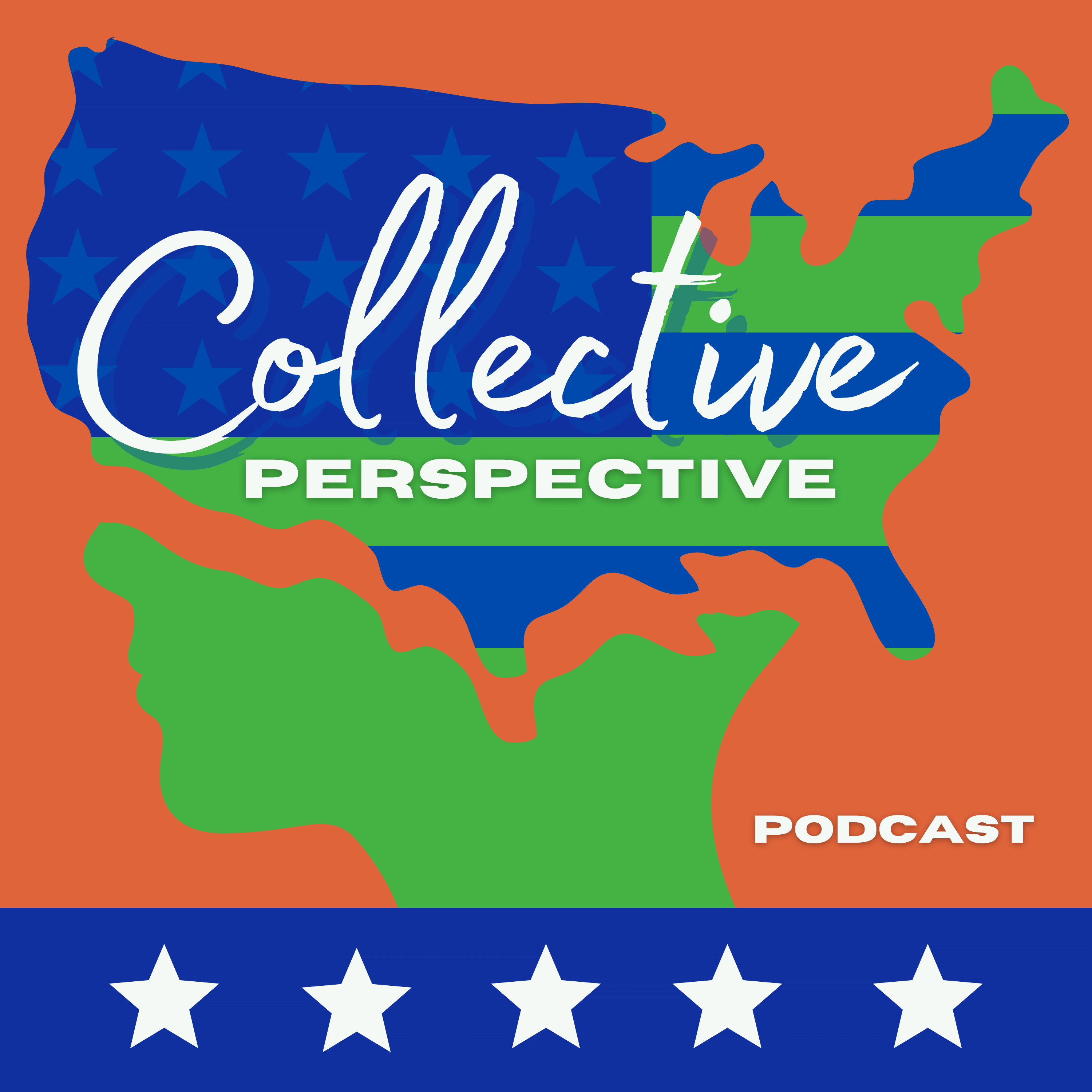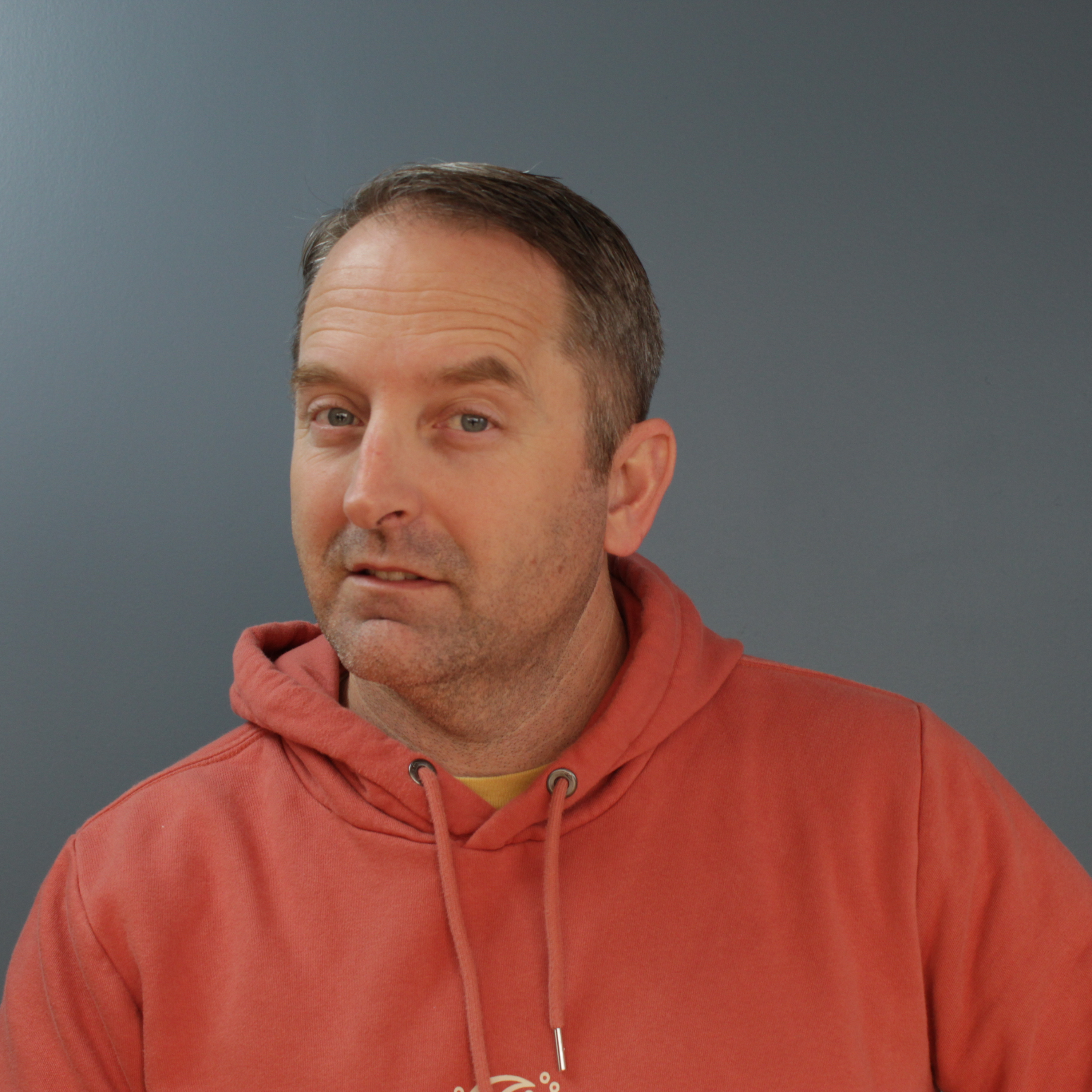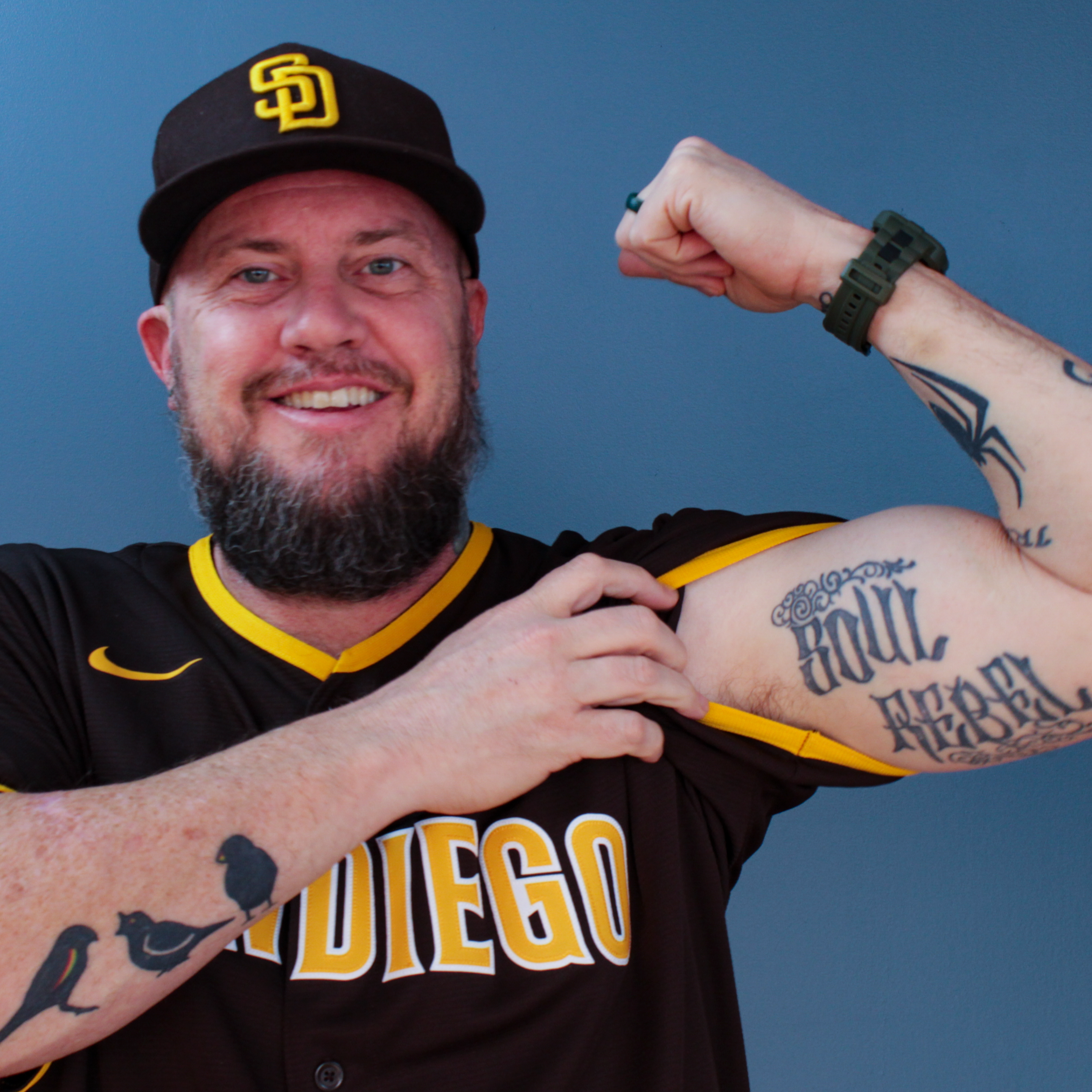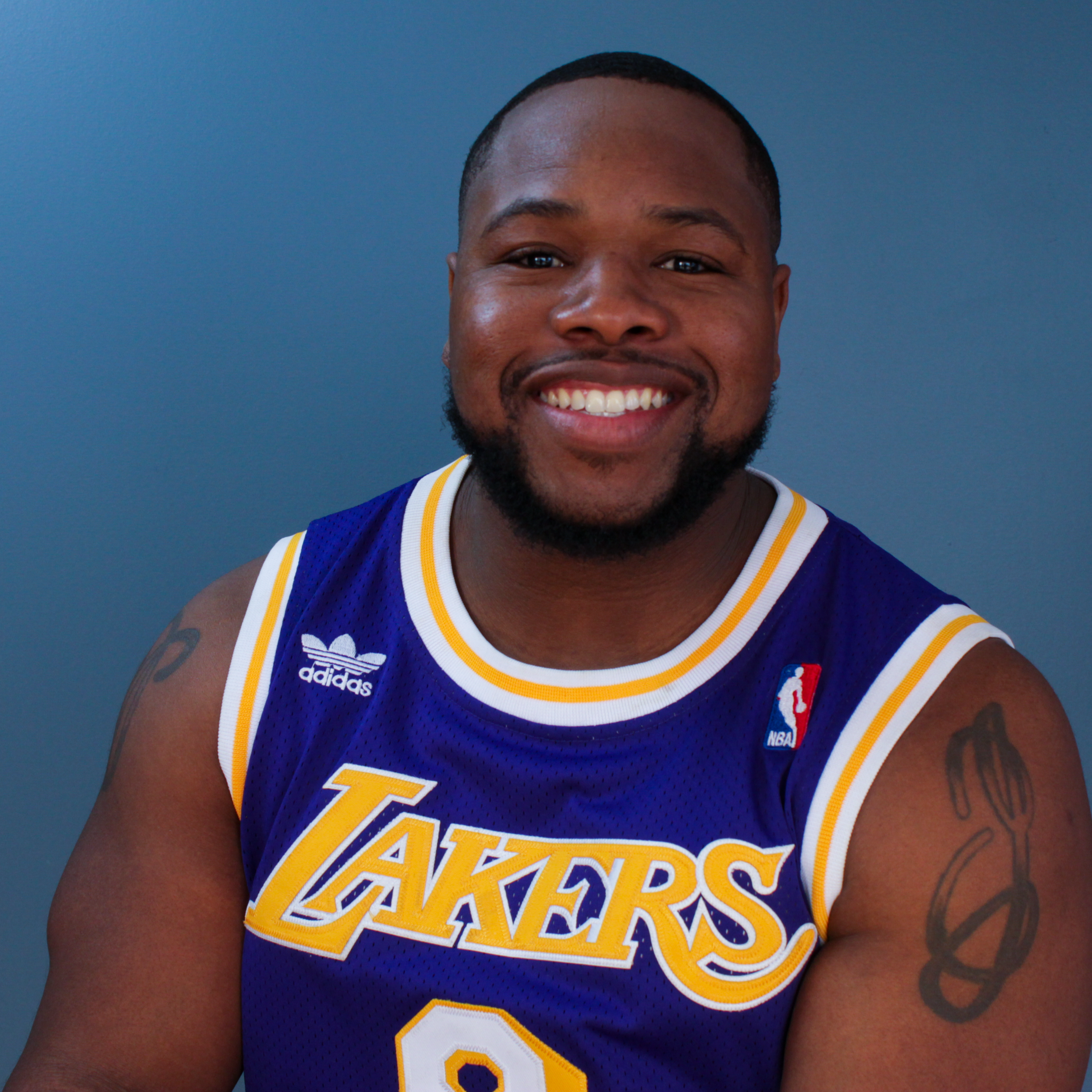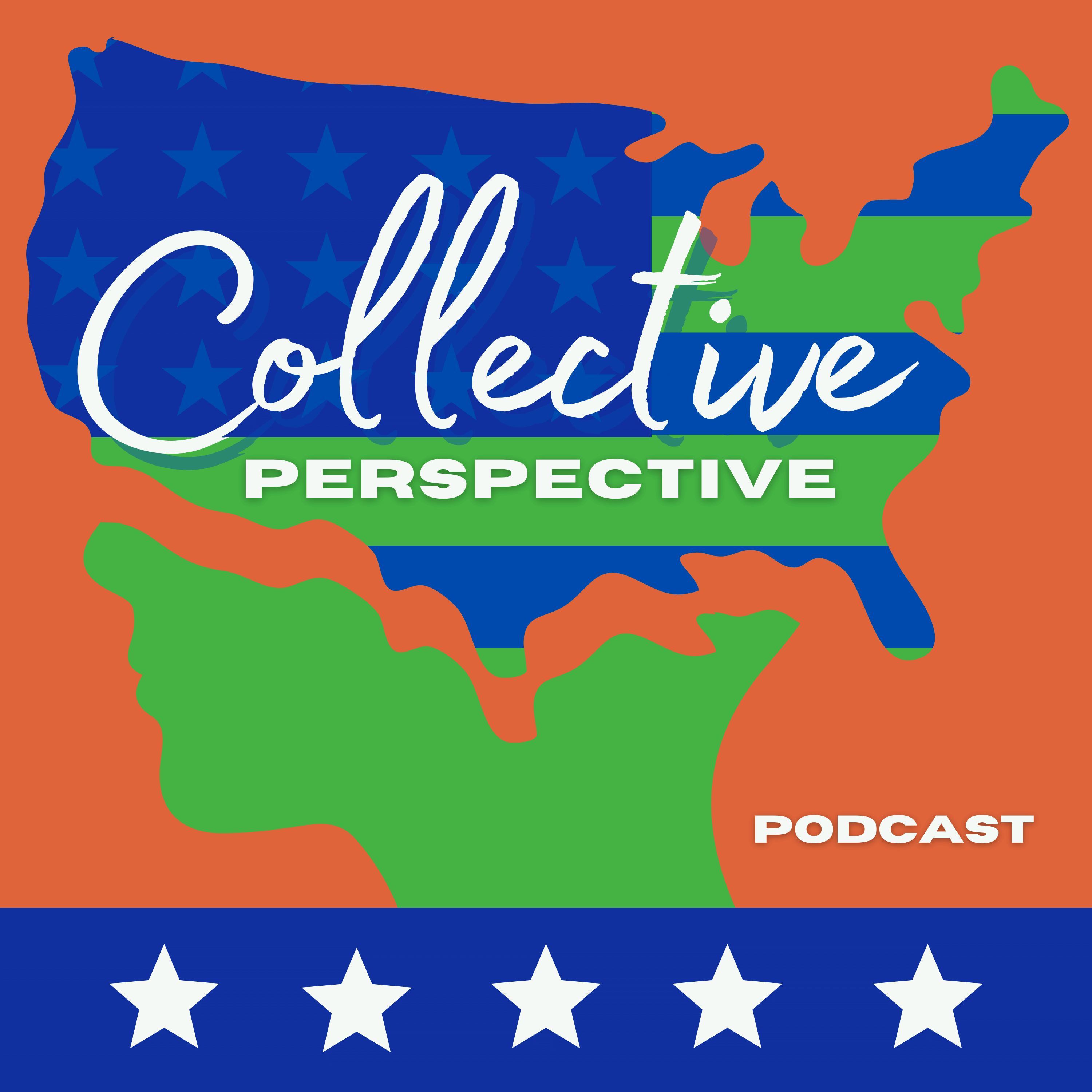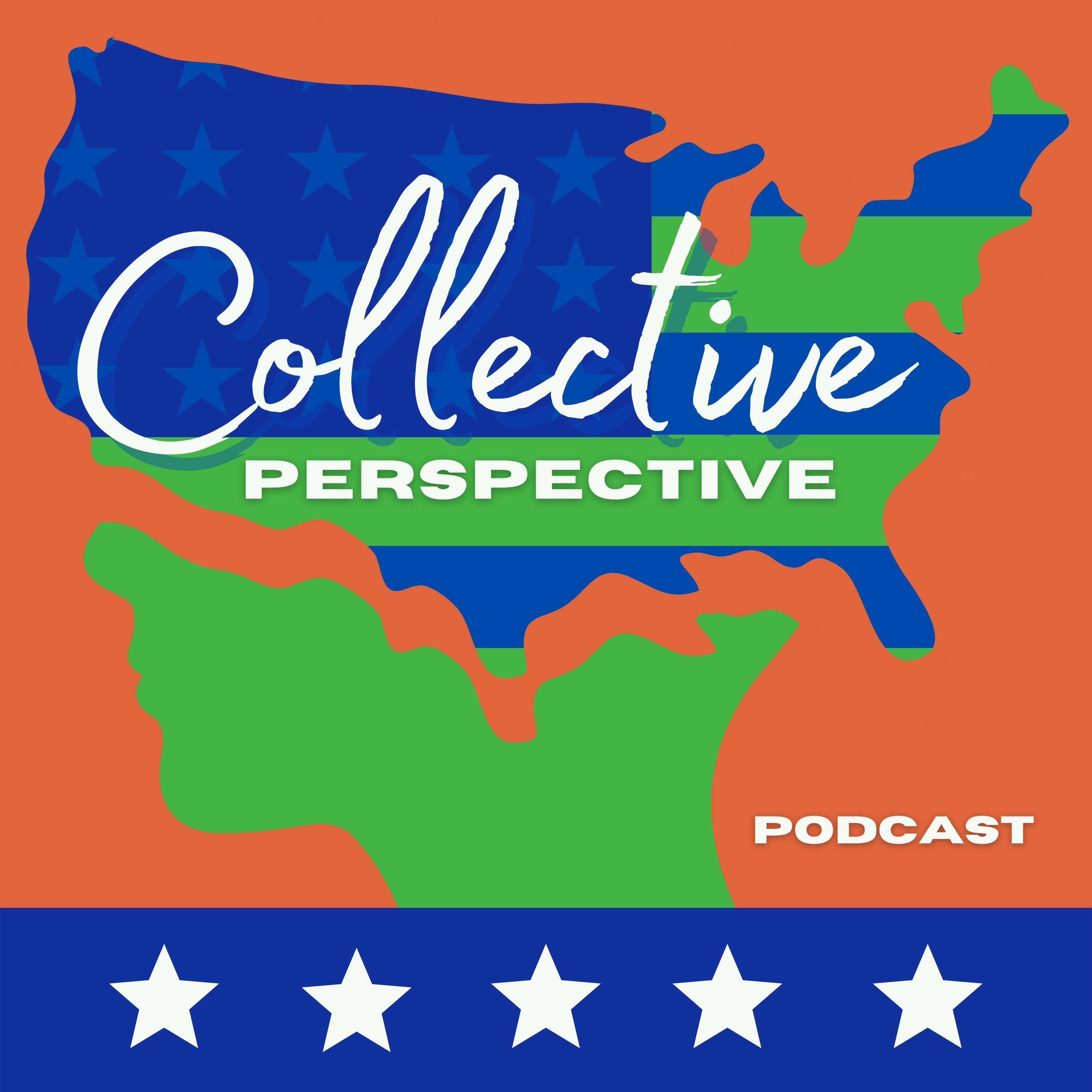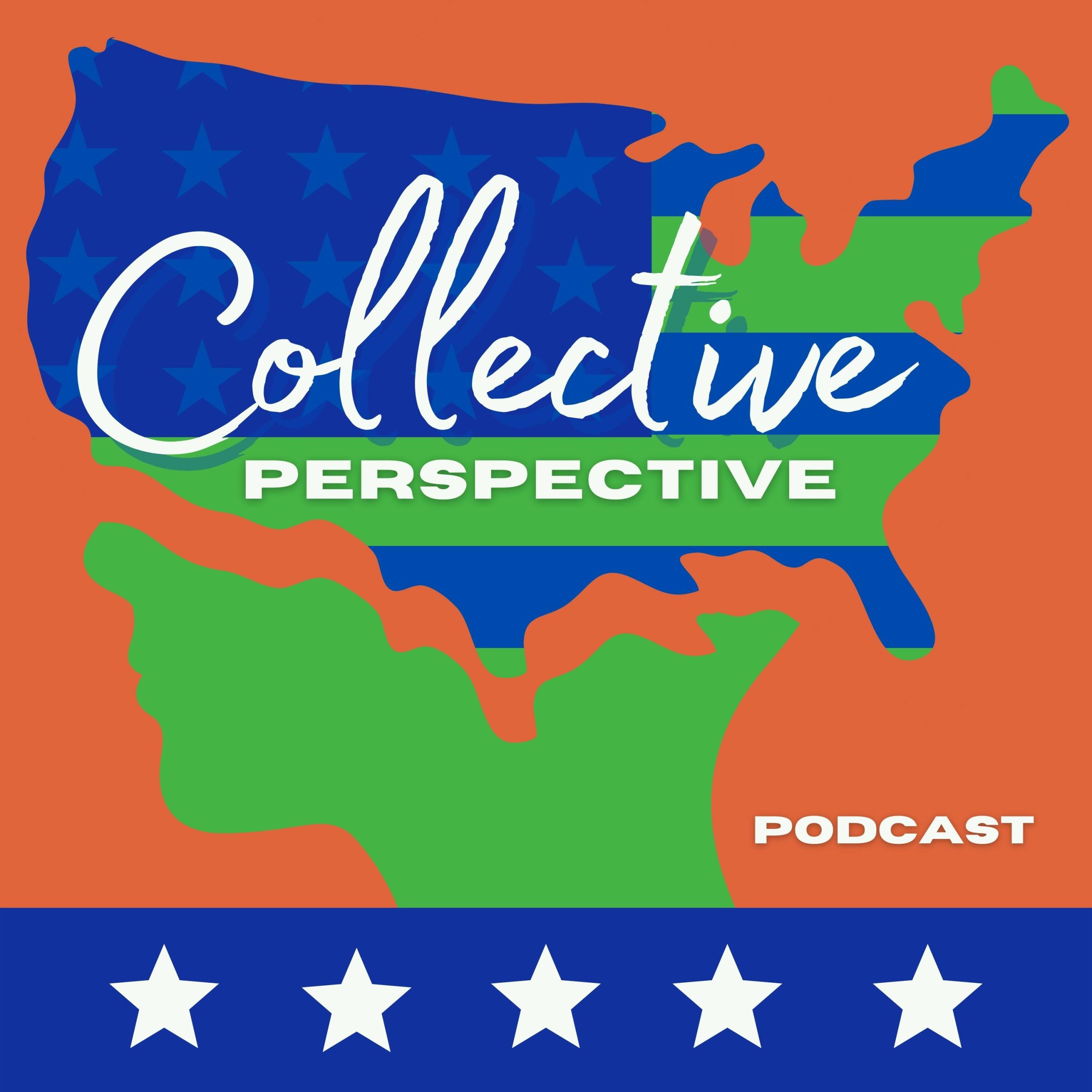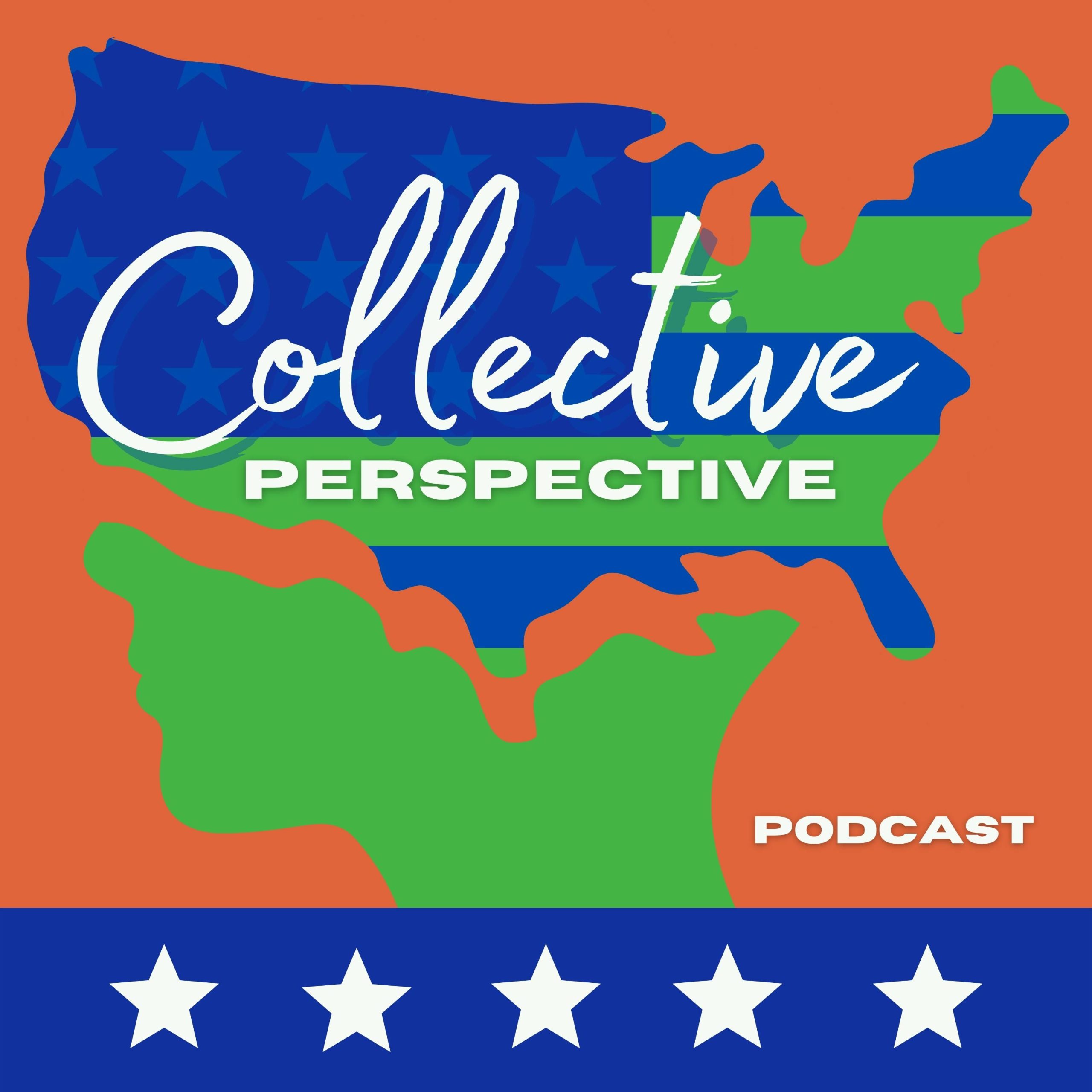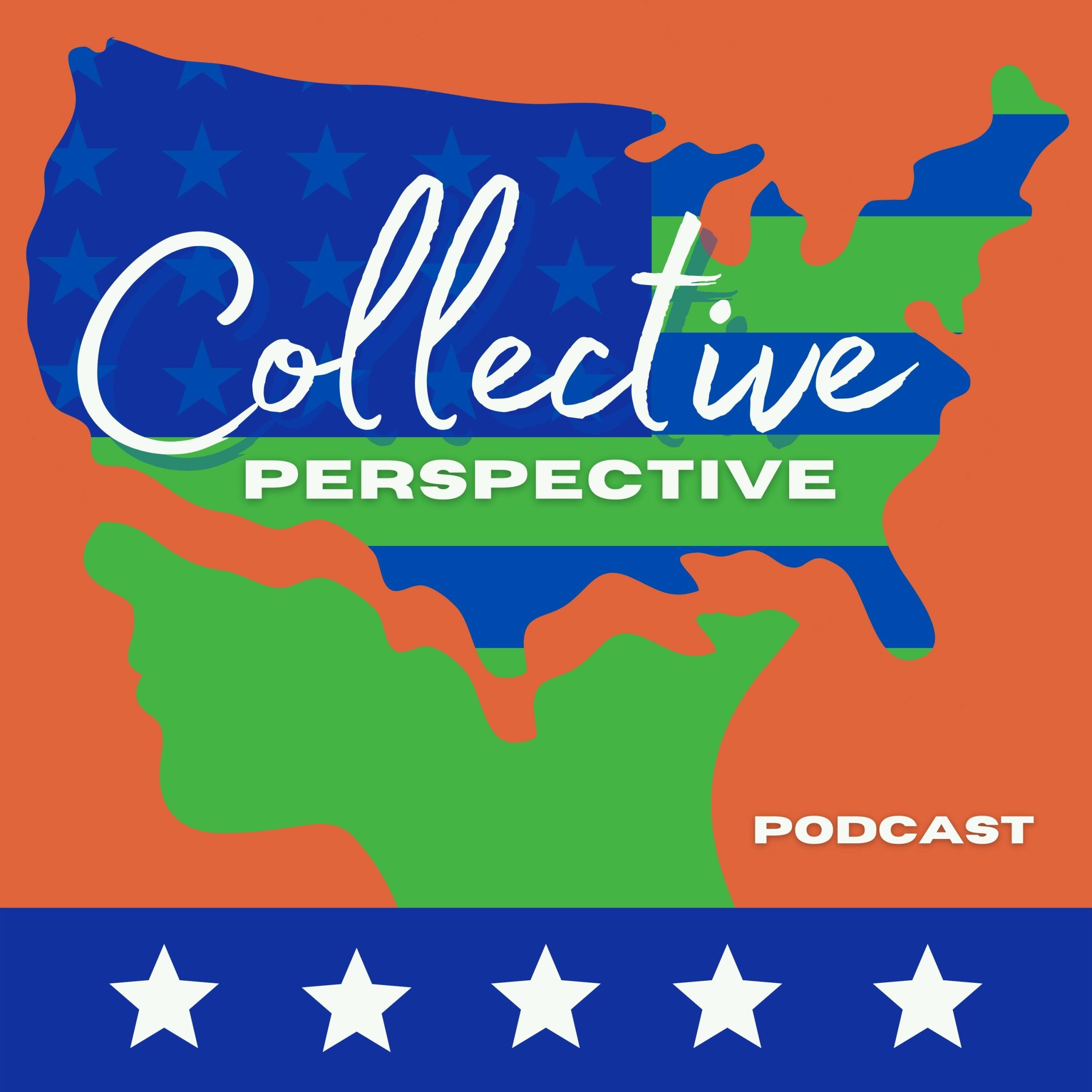Episode Transcript
Welcome to a new season of the Collective Perspective Podcast. As we dive into this season, we're focusing on the pivotal upcoming election. Widely considered as one of the most important of our lifetime. Join us on this journey as we navigate through diverse perspectives, dissect key issues, and explore the profound impact on our shared future.
Get ready for insightful discussions and thought provoking insights. Welcome to the Collective Perspective Podcast season three.
Hey everybody, welcome back to the Collective Perspective Podcast. This is Jeff and my buddy Travis. Hello everybody. And my buddy Jawad. What's up? A brief recap of season three in which we focused on discussing social issues, civic responsibility, and fostering unity among the population at large. We will also talk about some key takeaways from Season 3 and introduce Season 4's focus on community empowerment.
We started off this season just like we did, in a lot of ways, the second season. And we thought we'd start off with an amendment, an important amendment, and whether you believe in anything related to guns in the United States. It is, there is a reason why we have that. And that is only, you may think it's to hunt or to protect your family.
It's not any of that. It's to protect us from a tyrannical government. Our forefathers put it in place because we were under attack of a tyrannical government. A government for a hundred years that started taxing our people and policing them on the streets in uncivil manner ignited us to be a country, and we no longer wanted to be a country.
Have that happen to us again, because as we know, guys, history repeats itself. And you can't have a country without being able to protect what's most important to you. And you can't necessarily have a life without being able to protect that at whatever cost it may be. And let's face it. It is absolutely horrible what is happening in schools, and what is happening to people in the United States.
Las Vegas, for example, and other places. More recently, Orlando. Yeah. And our hearts go out to those people, the victims, and their families. And the only way that you can stop a bad guy is with a good guy, with a gun. And it's much like freedom of speech, where freedom of speech is, if you allow someone to control speech, then that's allowing them to control you.
Do we really want that as Americans? We don't. We interviewed Mr. John Payne, the author of a book called The Second Amendment Manifesto. Whatever Americans should know about the Second Amendment. Should know basically about the second amendment. Uh, yeah, that was a great interview He was in he was overseas, wasn't he?
He was uh, we interviewed him from Czechoslovakia Which is kind of cool Czechoslovakian, but he Czechoslovakian Czechoslovak He's an American living abroad. Nonetheless. We had two episodes on the Second Amendment Again, this show isn't just trying to give you one perspective So even if you kind of feel whatever way you feel about the Second Amendment and guns You should take a listen to these because it opens your eyes to different perspectives, if you know what I'm saying.
Then we had Dr. David Jameson from Edward Waters College. Jawad and I interviewed this gentleman. The importance he brought to was a lot of people dismiss the existence of slavery and how the black culture, the black slaves were actually what built America. It's actually the whole reason why Paris and all those countries in Europe look so beautiful.
Because black slavery built those. And it wasn't up until, you know, just kind of briefly, I don't want to go into the topic too much, but during our forefathers times, the first time in human history that slavery went to race versus just being a slave. In biblical times, And throughout time, up until the point of slaves being sold from Africa to the United States, slavery was a way to get out of being impoverished and you can pay your way out of slavery with time.
You, uh, maybe you were abandoned and, or your whole family died but you, and you needed somewhere to go. The slave owner would take you in and pay you a wage room and board. So we thought that was important to, to know, to get a little history on American slave slavery. Our independence came at the cost of their freedom.
We explored the pivotal moments or the pivotal events of July 4th, 1776. And the strategies and he went into led to an American independence. Yeah. And he went into the Frederick Douglass speech. He went into. When he was talking about Frederick Douglass and how they wanted him to speak on the 4th of July and they was like, Why are you asking me to pre speak on this day?
The whole premise of, you know, slavery was, was, was the undertone. Uh, it was just a undertone issue for me and where I come from. Yeah, I remember that he was talking about. That, yeah. Absolutely. About how Frederick, uh, why should I talk about independence when my people aren't independent? Exactly. That's what he was talking about.
He, he was, he was brushing over that aspect of it. He was just talking about how it still socially impacts people to this day. And we talked about historical and contemporary issues that started with the American Revolution. Absolutely. And its implication for African American slavery and, and moving to a modern day political and social movement.
Yeah, which still impacts us today. Absolutely. Absolutely. Socially, from a cultural perspective, yes. And it, it highly intersects with, uh, African dysphoria history. Mm hmm. And the evolution of, uh, social protests from the past and the present, and the role of media in shaping that public perception. So, the episode was kind of, uh, still a spinoff of what we were getting into.
Uh, in season two, and that is why is the government lying to us? But I thought this was a kind of a cool thing to have drop right before fourth of July to, you know, if you're out being patriotic and you have your family gathering, which we, we went to Travis's again. It's always a good time. We're the closest family we have here and, you know, having these different voices is what we feel makes this podcast beneficial and to hopefully get a larger reach and to be able to open people's eyes to different perspectives.
Again, that's what we're about is, is getting that different perspective and trying to grow from it. Then we moved on to what I felt was kind of just twisted. I think it's kind of something that people try to use in a political argument against someone and they don't really know. The details of it. So this, this episode was called church and state untwisted.
It's our first controversial, uh, episode kind of feel it's controversial if it doesn't meet their agenda or what, how they perceived, uh, Well, and you know, everyone has that misconception of church and state, and there's, there's no way that you can, well, we did go in depth on how people make their own personal decisions based on their personal beliefs, and even in the political arena, yes, we'd like to We defined what the definition of church and state was, the separation, meaning that no government shall form a one state religion or mandate a one state religion.
Even though religion is, it guides our morals and it guides our daily decisions, having a one state or a one religious religion for the state is. Not what America's about. We have multiple different religions and they all, and most people will base a decision or their course of action on their upbringing and their, their moral background, their moral ethics, if you will, religious.
responsibility to their religious beliefs. Whether it is a organized religion or no religion at all. Absolutely. Because we do have a lot of atheists and a lot of agnostics and everything in this country, so that was important to understand that the separation of church and state was was more geared towards not having a state sanctioned, uh, one religion for the whole state, for everyone.
By the way, we thanked Pastor Ben Wheels for that interview. Pastor Ben was a very good interview, and, uh, you know, I got a chance to go to that congregation and see how they do things up there. Well, what it did is it defined the importance of maintaining that separation. Uh, making sure that we keep that separate at all times.
Right, and some people think that this means that religion shouldn't be in politics, but At all. Again, like Travis is saying, that's not true because that's where a lot of people get their ethics. We also went back to our calling a couple times, actually several times throughout the season. And the first time was episode 39 where we talked about, talked with Operation Barnabas and the president of that organization, Mr.
John Green. That was a great conversation. What an energetic man he is and very passionate about the topics and about that topic of helping veterans get on their feet, ones that have been in a, in a tough spot, he is very knowledgeable on what he was trying to do and who he was trying to help and how to help them.
He's. Was very outspoken and passionate and I really respect that about him. Yeah, he was, and you could see the impact of him changing lives and helping just people from a grassroot perspective. And really, really helping them, you know, kick habits and find their identity and find their direction. Cover in and help them get on their feet effectively.
I think that's the key part there. Get on their feet effectively and, and move forward and not go back. Then we had the privilege of interviewing Mr. James Burris was a 10 year army veteran and a Purple Heart recipient. He also works for Operation Barnabas as the director of operation. He had a very interesting, very high powered interview with us.
That was another one that I missed, um, on that one. Sorry about that, guys. I would say that, uh, it was an emotional one. It was very emotional. Very raw. It was very, I would say, raw and uncut. I think it changed Jawad's life. Yeah, it gave you a different perspective on Seeing, you know, I'm a civilian, so I didn't serve and you see it from the, the veterans perspective of what he had to go through, how he had to find a new identity in the social, just, just as a civilian and not an army vet and how he had to struggle with mental issues and health issues.
And getting the assistance and the help he needs, but at the same time, finding the strength in himself to help others too. And, and I thought that was incredible with him. And I want to remind everybody that if any of these topics sound something that, Hey, I would really like to hear more about that. You can hear us on all the major platforms, Spotify, audible.
And Apple Podcasts, just Google us, MTS Jax FM, uh, Collective Perspective. We also really started going into our roots of where we're headed in the fourth season. I might as well let you know. In the fourth season, we decided that we wanted to see how we can get America stronger. And it starts with local communities.
The reason I mention that is we want to highlight those that provide service to people in need or change or make America stronger in some facet. Like we're about to interview Jay Dash, who works with the NAMM Foundation and music education and how it's important with kids and also has his own platinum status, how music education and education itself would make America stronger.
We kind of started with that already in this season, episode 41, where we talk about recovery from the battlefront. We had Melissa and Nikki. Those ladies represented undercover recovery jacks and rebel recovery. And these are benefits, uh, uh, Organizations that are lifelines for those lost in the depths of addiction.
And it's not necessarily getting clean. It was a safe and effective use or providing a safe environment or at least clean supplies if you are using. Also, that was a Narcan. We talked about Narcan on that one and how to use it and where to get Narcan. To help save a life because, you know, addiction is a battle.
People go in and out of it and they can overdose when they've been clean for a little while they overdose. And if they have family or friends or anyone around them that knows how to use the Narcan, I think that was a big push on them. They were. Completely grassroots, doing it out of their trunk, driving around in Jacksonville in the local community, trying to have an outreach and education on how to save a life and how to make things safer for people that do use and that aren't seeking.
Recovery at this time or at a specific time in their life a shout out to those ladies They definitely put in effort boots on the battlefront trying to make America stronger from the ground up from the ground up from the weakest Point that was a really good. I thought that was a pretty good episode to most of these were great episodes Then we went episode 42 the ballots and algorithms.
This is where we interviewed my daughter Irie Travis missed this one too, but I did listen to it. That was a good, uh, that was a good discussion. She was amazing. Absolutely amazing. Yeah, first time voter and the episode's called Ballots and Algorithms. I thought it was appropriate because that is where your kids are getting their, their, their information these days.
Not just on news, current events, everything. Is on social media. Shout out to Jeff, he, him and his, him and her mother did a good job raising her. She was amazing. She's amazing. Then we went into a conversation, a two part episode where we released them together, where Mr. Juad coined the frame that we're just cannon fodder, meaning that we had a debate about U.
S. presidential candidates with some friends, Ms. Brandi Mackey and Jamie Brock. It was an interesting conversation. One thing that keeps on ringing through my head about what Jamie said and that, in Project 2025, was that you don't make a plan if you don't plan on using it. Uh, I think the analogy thought was like if you, a coach doesn't make a plan, a game plan, and doesn't intend on using it.
But the thing that keeps on going through my head is this, uh, then what are patents? Because patents are plans for things that don't necessarily always happen. What about, uh, the plans that you write out for your life that don't necessarily happen? Because other things become obstacles or life just leads you on another path.
Writing out plans because you plan on making it happen isn't a viable excuse for me to think that that's why that makes Trump liable for what they're trying to say that he's What are you doing with the 2025? For that, I did receive a text from someone talking, trying to tie President Trump to Project 2025.
And I think that AI It was good at coming up with a response to that, a rebuttal, because, you know, through our research, we found out that, yeah, there were a lot of people from his cabinet or from his administration wrote this Project 2025, but it wasn't necessarily tied to Trump. So if you Trump's staffers are contributing to Project 2025, that doesn't exactly make it Trump driven.
People with experience in his administration might share similar values. But attributing everything to Trump feels like a stretch. You remember that? Yeah. I mean, I, I think that that's, that, yes, they may have some similar values, but once they're out of the administration, that's not his deal anymore. Our friends aren't here to defend themselves, so I, you know, obviously I'm not going to have rebuttals other than what I was on top of my head about that.
It just seemed to me like it was, like, social, social media played a big part in how it influenced some of our people that we're in. The interview, and I think what we need to focus on moving forward is, is really knowing the facts about our politicians and their intent to run and be our president of the United States of America.
And I think a lot of people, they will like to, they hear things that they, Are comfortable with and they stick with it. I think one part of that, though, is that having some people feel comfortable and not looking outside of their echo chamber, and they go with that, and there's nothing wrong with that.
That's how a lot of us are on certain topics. They live within their echo chamber, and that's okay. Is it really okay though? Because it's kind of the problem. Yeah, that's, that's, that's when I think that can show how censorship of one side can sway People's opinions, if you're, if you're not able to constructively listen to some, another point of view, or if you're not able to get that point of view from someone else, it can negatively impact your, your whole perspective or outlook on certain subjects.
And just to note this up, this podcast is coming out the week or the day after the election. So then we went on to, it's time to unite, not to fight. We need to shift gears, and we need to learn to, if the government's not gonna do it, we the people need to find a way. It's a little far of a stretch because, like Travis said, they're stuck in an algorithm, or an echo chamber.
To where they're only going to listen to what they are, they're stuck to what they're doing, and they don't like change. That's a tough one, because I don't want to sound callous or calling anyone out, because I'm not trying to do that. It just, uh, maybe that's just how it comes out from me. I'm, I'm sorry about that.
No, I don't think, uh, I think all of us have that intent in mind. Uh, like I said, our friends are not here to defend, uh, back what we're saying, but it is just noting what, uh, our perspectives of things are. Then we moved on to public schools, apostrophe s, by the way, very important. Enemy number one, where we talked about, uh, with, uh, with Mr.
John Green, who is a former principal and the struggles and the challenges of teachers and administrators. That was a very powerful Episode talking about the struggles that they have to go through in public school system and it's just crazy. And from the inside, how it feels like sometimes less is more, like less government interference would be better for the outcomes of the students.
Well, because leading at a distance, uh, doesn't translate all the way through. Leading from afar as opposed to more local, like having local decisions made for school and teaching and kids at the community level was better for the progress and the outcomes of those students. And John was one of the first administrators to carry a weapon on campus.
Yeah, one of the things he pointed out was how the government is somewhat detached from like the local affairs of the school system. Yeah. The things we have to tend to is a kind of a local and state concern. And then the government is just an overseer. They're kind of detached from the daily affairs of the needs of children and the needs of the educational system.
The micro versus the macro. Exactly. And lastly, we ended it with Viesto knowing is half the battle. Oh, those guys were awesome. And those veteran service officers, Richard Carey and Paolo Assadio. From the Clay County veteran service officer are kind of one of a kind. And yeah, they, they gave great information.
Check out that podcast for all of our veterans out there. Uh, they're going through VA disability or have a VA disability or have any kind of service connected disability. Hey everybody. Thanks for tuning in. Thank you for listening to season three. This is a recap of our season and the topics that we discussed.
Again, if you want to hear any of those, you can go on any of the major platforms, audible, Spotify, and Apple podcast, and listen to them. And listen to them and spread the word, have conversations with your community, with your family, with your friends, get a topic, just at the collective. I don't think people will do that, but Hey, you know, I think we, we want to thank our listeners for their continued support and, uh, for being part of our collective journey piece.
Yeah. Uh, thank you. Season four is like I said, going to be impactful as we bring on what makes America strong. Thanks for listening later. Peace out.
